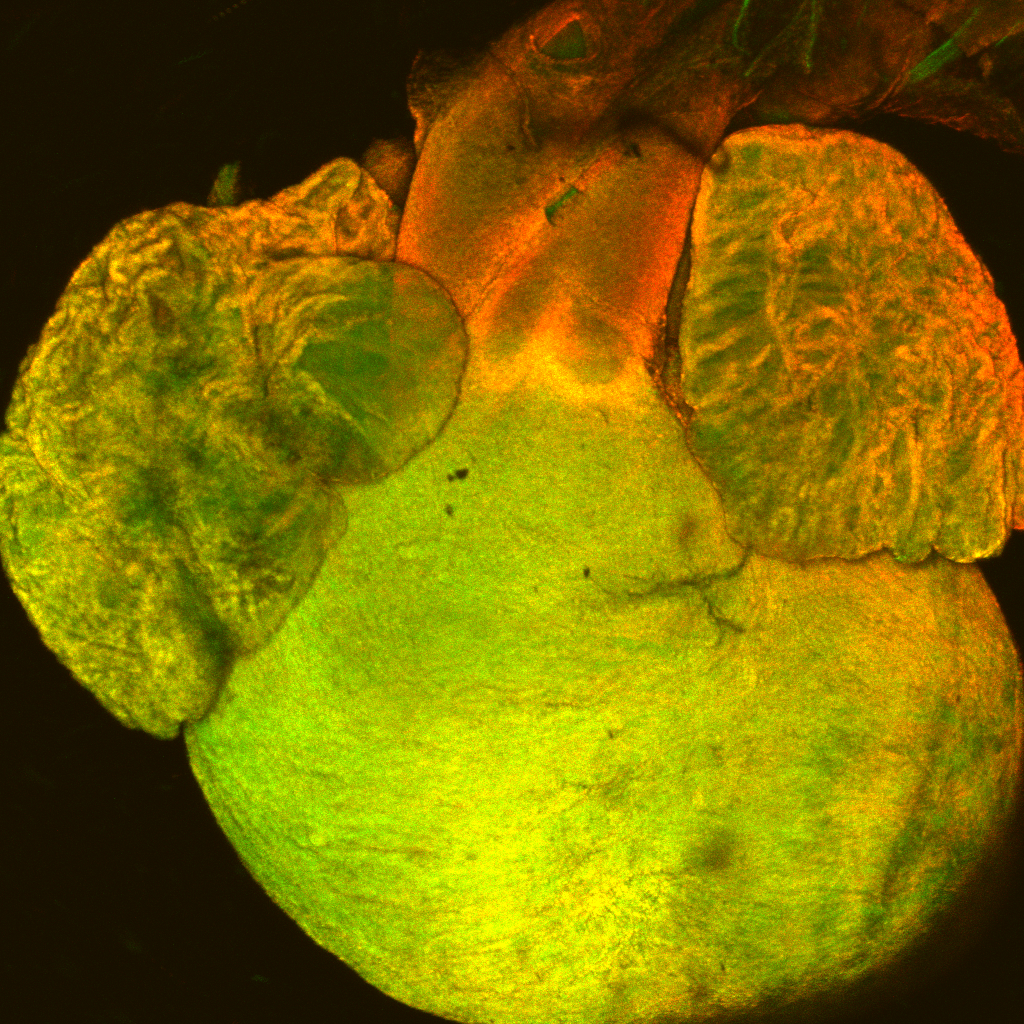
Embryo and heart
Lab for heart development and congenital heart diseases
RESEARCH
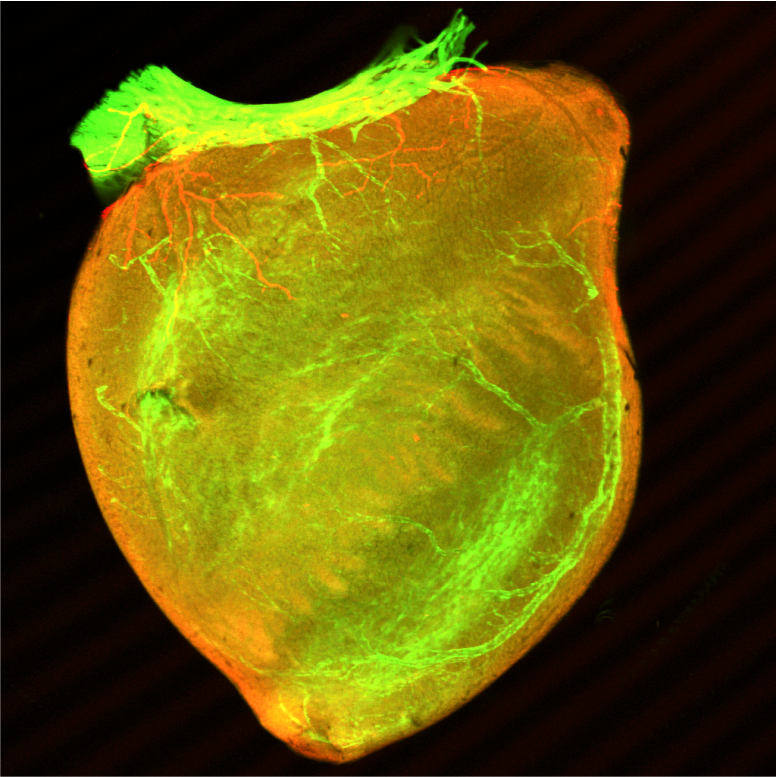
Basic research - heart development
The main focus of our research is to understand the cellular and molecular mechanisms driving heart development, with a particular emphasis on the role of NOTCH signaling. We investigate how distinct cardiac cell types assemble into a functional organ, and how perturbations in these processes contribute to congenital heart diseases.
To address these questions, we apply advanced methods of physiology and developmental biology: including high-resolution VEVO echocardiography, immunohistochemistry, RNAscope, confocal microscopy, and single-cell transcriptomics. Through these approaches, we aim to uncover the roles of lineage specification and intercellular signaling in the proper formation of the heart.
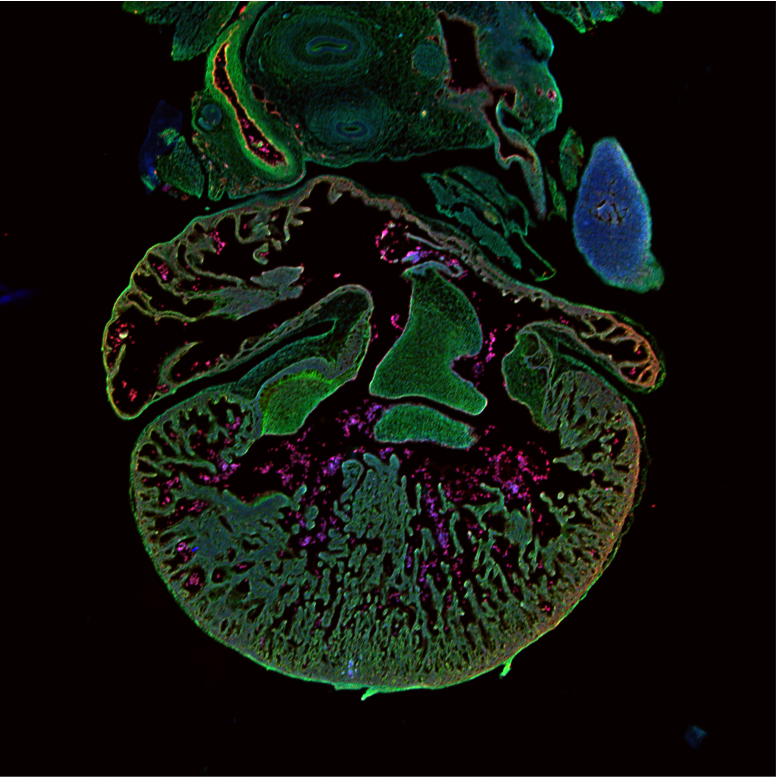
Congenital heart diseases
The aim of our lab is to investigate the developmental origins and mechanisms of congenital heart diseases using genetically engineered mouse models. We simulate human cardiac malformations through conditional knockout strategies targeting the Jag-Notch signaling pathway, as well as by introducing specific point mutations that mirror those identified in patients.
By studying how these genetic alterations affect heart development, we aim to uncover the molecular and cellular mechanisms that lead to congenital defects and gain insights relevant to early diagnosis and targeted therapies.
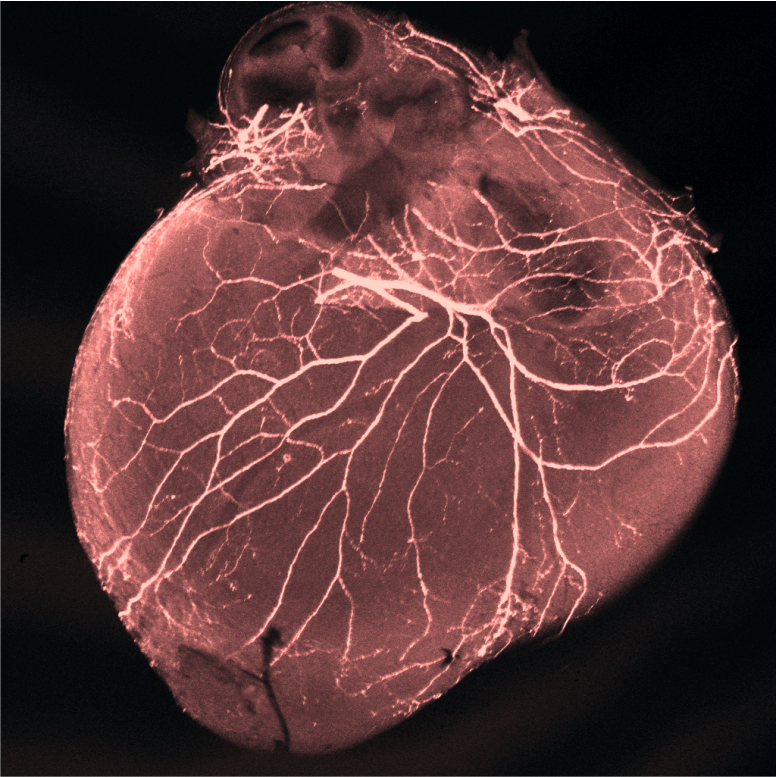
Heart regeneration
Our lab is dedicated to understanding heart regeneration using in vivo avian models of embryonic myocardial infarction. By inducing controlled cryoinjury to the myocardium, we study the natural regenerative responses that occur during early stages of development. Our research aims to uncover the cellular and molecular mechanisms that enable effective myocardial repair. These findings may provide valuable insights into regenerative strategies that could one day be applied in human cardiac medicine.
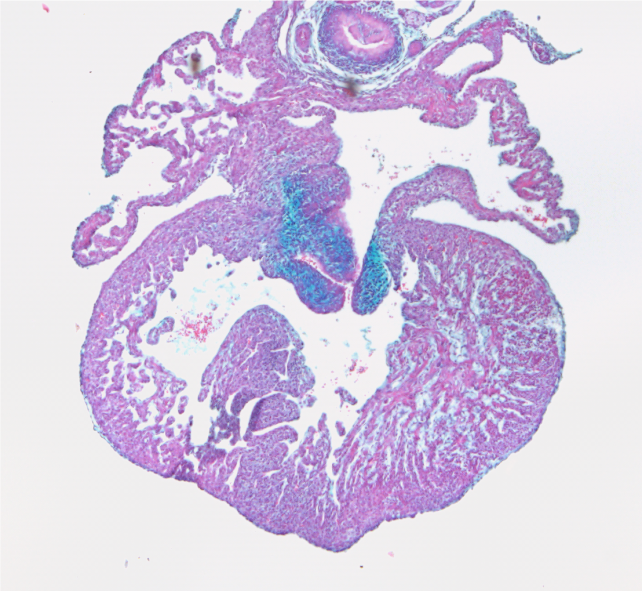
Students training
In our lab, we focus on creating an environment where students thrive through active involvement in research. We encourage critical thinking, hands-on experimentation, and independent project development, helping students build both technical skills and scientific curiosity. By engaging in real-world research questions, they become integral members of the team and contribute meaningfully to advancing our understanding of cardiac development and disease.